Scottish referendum: What is the 'English Question'?
- Published
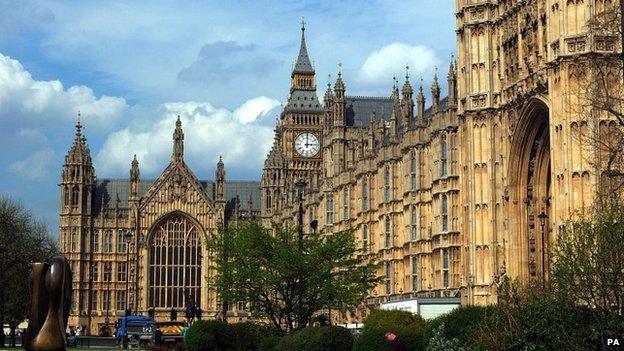
In the aftermath of Scotland voting to stay within the UK, David Cameron has said a "decisive answer" is now needed to the so-called "English Question".
This is the longstanding issue of whether MPs with seats in Scotland, Northern Ireland or Wales should continue to be allowed to vote on legislation and other matters at Westminster that will only affect people in England.

Sounds familiar. Didn't it used to be called something else?
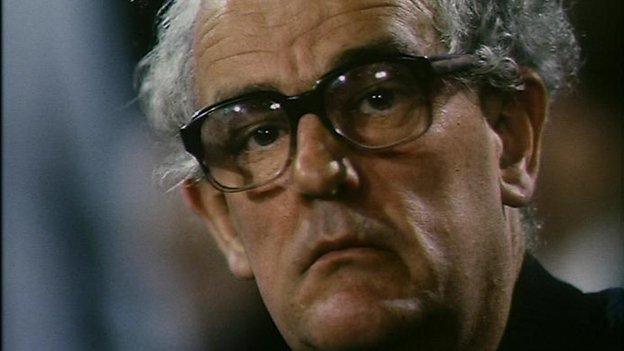
Yes, it used to be known as the "West Lothian Question".
The phrase was actually coined by Enoch Powell, the former Conservative minister and Ulster Unionist MP.
But the issue is most closely associated with Labour MP Tam Dalyell, who in 1977 highlighted what he saw as a dilemma caused by devolution - that Scottish MPs would carry on voting on English issues but English MPs wouldn't have a say on matters in Scotland.

So why has it taken so long for anyone to try to find an answer?
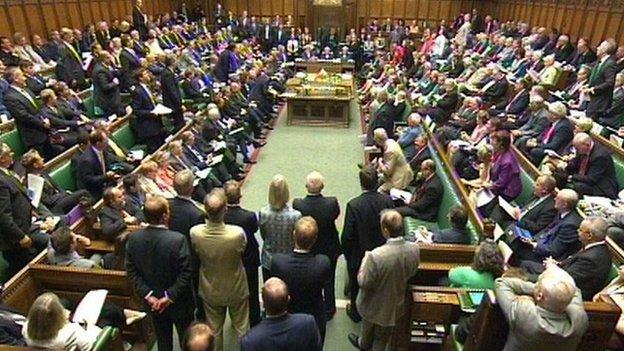
Scottish MPs can currently vote on legislation only affecting England, in areas such as health and education
If you've ever read 1066 and All That, you'll know that William Gladstone spent years trying to guess the answer to the Irish Question only to find that whenever he got close the question changed.
To be fair the English Question has never really changed, but no one can agree on the answer.
Some people have argued that there should be an English Parliament. That isn't what the prime minister is talking about. He wants to see changes in how the existing Westminster Parliament does its business.
It is not the first time someone's tried to work out a solution to this question.
In 2008, a committee chaired by the former Conservative Chancellor, Kenneth Clarke, shied away from banning MPs from Scotland, Wales and Northern Ireland from voting on English matters.
Instead the group proposed changes to parliamentary procedure so that only English MPs would be able to make changes to legislation that only affected people in England. But all MPs would be able to take part in the final vote.
Last year the McKay Commission, chaired by a former Commons Clerk, Sir William McKay, proposed that the Commons should accept that decisions affecting England should normally only be taken if a majority of English MPs agreed.
But the Commission rejected the idea that MPs from Scotland, Wales and Northern Ireland, should be banned from voting on legislation because it thought this would create different classes of MP.

What do the different parties think of all this?
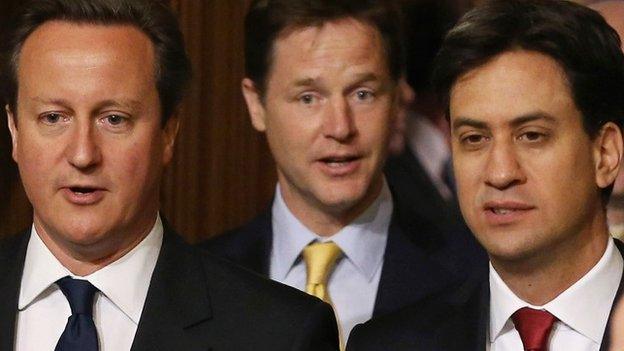
David Cameron has made it clear he wants a decisive answer to the English Question. Plenty of Conservatives have made it clear they favour a system of English votes for English laws.
In other words a solution that builds on and perhaps goes further than the proposals from Kenneth Clarke and Sir William McKay.
It's much more difficult for Labour. The party's chances of getting a majority at Westminster could rest on its Scottish MPs. A solution that prevents MPs from outside England voting on certain issues could make life very difficult for a future Labour government.
Labour has described Mr Cameron's plan as a "knee-jerk reaction".
The Liberal Democrat leader, Nick Clegg, says it would be "unfair" to leave Westminster out of what he calls the "rewiring" of the British constitution.
But earlier this week, the Lib Dem Treasury Minister Danny Alexander said taking away the voting rights of Scottish MPs wasn't part of the agenda and wasn't going to happen.

- Published19 September 2014
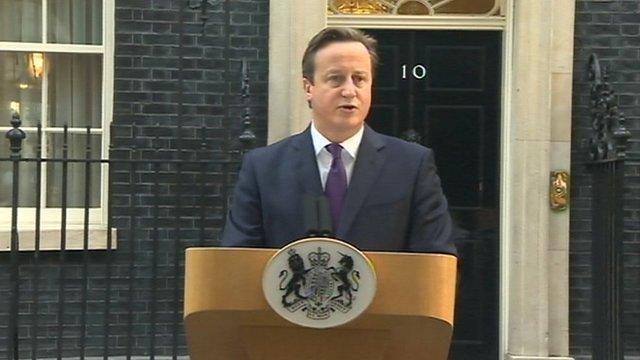
- Published19 September 2014
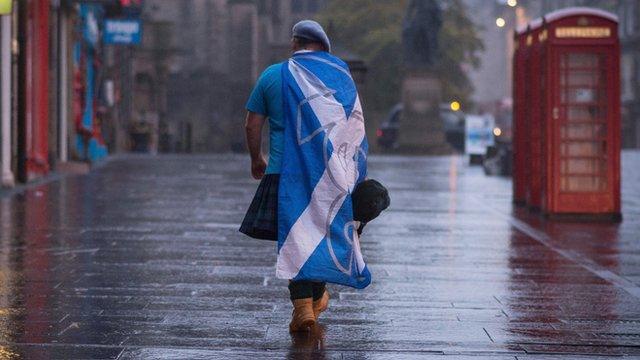
- Published19 September 2014
- Published19 September 2014